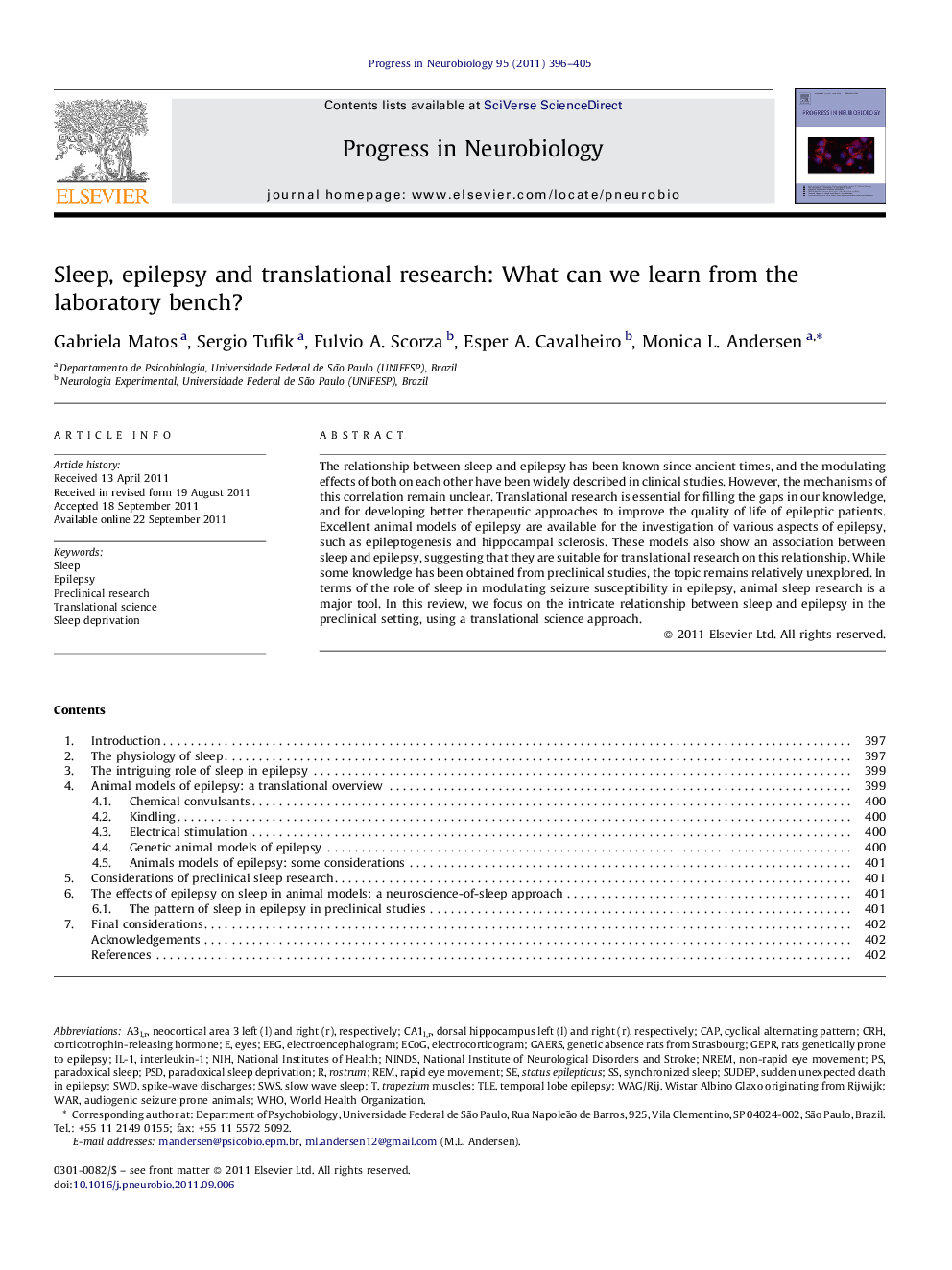| Article ID | Journal | Published Year | Pages | File Type |
|---|---|---|---|---|
| 4353591 | Progress in Neurobiology | 2011 | 10 Pages |
The relationship between sleep and epilepsy has been known since ancient times, and the modulating effects of both on each other have been widely described in clinical studies. However, the mechanisms of this correlation remain unclear. Translational research is essential for filling the gaps in our knowledge, and for developing better therapeutic approaches to improve the quality of life of epileptic patients. Excellent animal models of epilepsy are available for the investigation of various aspects of epilepsy, such as epileptogenesis and hippocampal sclerosis. These models also show an association between sleep and epilepsy, suggesting that they are suitable for translational research on this relationship. While some knowledge has been obtained from preclinical studies, the topic remains relatively unexplored. In terms of the role of sleep in modulating seizure susceptibility in epilepsy, animal sleep research is a major tool. In this review, we focus on the intricate relationship between sleep and epilepsy in the preclinical setting, using a translational science approach.
► Prevention of epilepsy must be the main goal of the health system. ► The sleep–epilepsy relationship is complex and of great clinical importance. ► The relationship between sleep and epilepsy is similar in humans and animals. ► Few studies have been conducted on this topic using a translational framework. ► Translating findings from laboratory bench is crucial in treating epilepsy.
